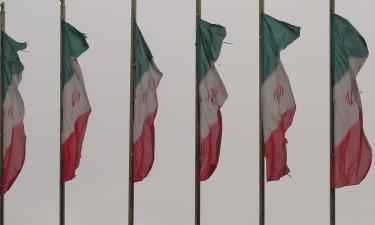AIRBUS A-380 SPARKS OFF COMMERCIAL ROW BETWEEN EU AND USA
Fearing that the new Airbus A-380 will be a serious competitor to the Boeing 747 in long-haul flights, the American company has accused the Europeans of violating international agreements on subsidies and threatens to take the matter to the World Trade Organization (WTO). Until now, the Boeing “Jumbo Jet” has had a monopoly in long-haul flights but the European A-380 is much bigger and will eventually be able to transport 800 passengers, twice the number carried by the Boeing 747-400. The first A-380s should be in the air by 2006 and will have an initial capacity of 555 passengers. A later model is planned to carry 656 passengers and if adjustments are made to the seating, the capacity will increase to 800. With near-misses over Europe’s skies happening more and more frequently, something has to be done to reduce air traffic and the advantage of the A-380 is that it will reduce the number of flights, apart from providing cheaper flights and a greater scope of services, including restaurants, showers, private bedrooms and a gymnasium. Boeing has long viewed the Airbus project with suspicion. In the past, the company complained that the European governments were illegally paying subsidies. The EU governments replied by stating that because Boeing had a monopoly in long-distance flights, and because Airbus was a young company, it needed support. Now the Americans complain that the Europeans are breaking international agreements on subsidies. They claim that in the multilateral agreements signed under the auspices of the WTO in 1995 the EU undertook not to pay subsidies to Airbus. The European governments reply by claiming that they are not paying subsidies, but returnable loans. Furthermore, under an agreement signed between the EU and the USA in 1992, direct financial aid is allowed for civil transportation aircraft which have at least 100 passenger places, if such financial aid does not exceed 33% of the project. Examining the costs of the A-380 project, we see that the complaints from the USA are unfounded. The total cost of the project is estimated at 10.6 billion USD (297 billion roubles). 56% of this will be financed by Airbus itself and a further 26% will come from suppliers associated to the project. This leaves just 18% coming from repayable loans from the EU (The United Kingdom, France and Germany), which leaves the financing of the project well within the international agreements signed. Behind the Americans’ panic is the fact that already, smaller Airbus planes are taking more and more of the market away from Boeing. Now with its increased passenger capacity and greater autonomy (the A-380 will have an autonomy of 15,100 km, whereas Boeing 747-400s have only 13,500) more long-distance non-stop flights will fall to Airbus. There are already firm orders for 50 A-380s from six airlines. Boeing is sure to do all it can to block Airbus whenever and however it can but the fact is that the EU has produced a superior plane. The truth sometimes hurts.
John Ashtead Pravda.Ru London
Subscribe to Pravda.Ru Telegram channel, Facebook, RSS!




